President of the Malta Blockchain Association Steve Tendon described the biggest barrier to Blockchain technology is truly understanding the concept behind it and its implications.
The Malta Business Weekly in collaboration with FinanceMalta has organised a business breakfast themed ‘Breaking the Blockchain Frontier.
Asked by about what barriers exist today with regards Blockchain technologies, Tendon aptly explained how there are many facets to this new and exciting technology, however the main barrier that exists today understands its implications.
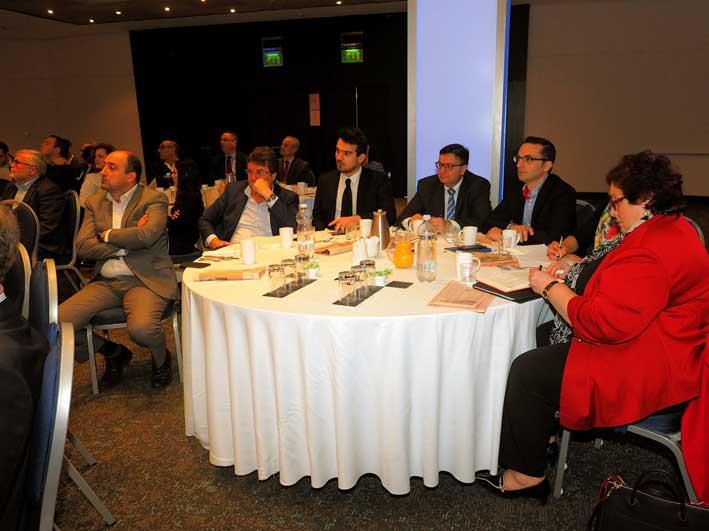
What is Blockchain technology?
Blockchain technology is essentially a ledger of information, which can be used to carry out transactions. Data and assets are recorded on the Blockchain itself andare not recorded by one single user. To be clear, the information stored on the Distributed Ledger Technology (DLT) such as Blockchain, is not stored on one person’s computer, for example, but uses a system of ‘nodes’.
These nodes contain all the information stored on the Blockchain, meaning if one person’s computer goes down, the information does not go down with it. The term distributed comes into play because the nodes replicate themselves, replicating all the information contained, making it more sturdy and secure.
***
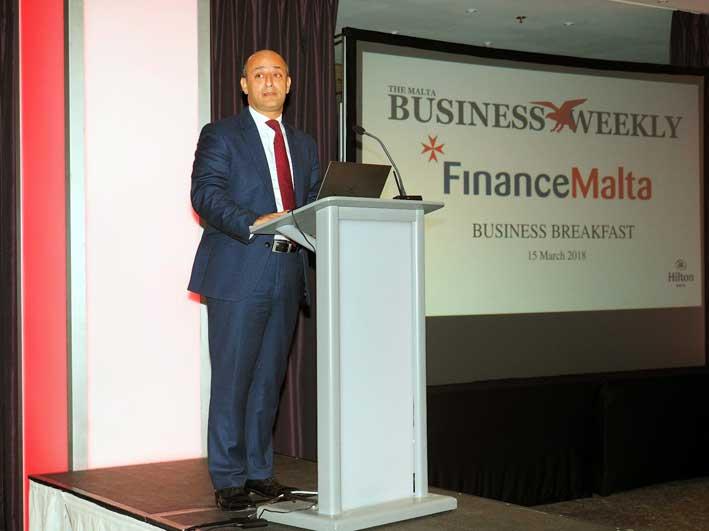
In his introductory speech, FinanceMalta Chairman Kenneth Farrugia spoke of the usefulness of discussions surrounding the application of Blockchain technology and Distributed Ledger Technology (DLT).
He said that discussions such as the ones hosted by FinanceMalta, apart from being well received, have served to give delegates a “below the hood information” on how the technology can be applied to everyday business and transactions.
“Today we will deal with the opportunities that this technology can present as well as the challenges that this technology presents.”
Farrugia went on to describe the disruptive nature this technology presents to legacy professions, such as the use of ‘smart contracts,’ disrupting the work of notaries.
“Traditional professions will need to get up to speed on how this technology can disrupt their work, and how they can adapt to this.”
Everyone is keen to see this being put into practice.
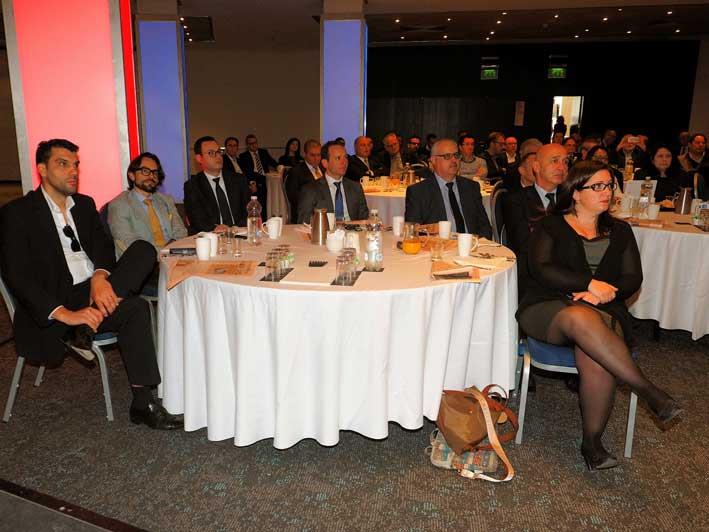
On the topic of cyrptocurrency, Farrugia said that industry players should not be wary of regulation, because if provides comfort and provides an even playing-field in which to work.
He made reference to a conversation with an individual looking to launch a fund using cryptocurrency where it will also analyse the different valuation of various cryptocurrencies on exchange and trading platforms.
“Clearly, we have concerns in this regard as these exchanges are not regulated. We have issues with the anonymity of transactions. We need audit trails”
He concluded by saying that he is a firm believer that cryptocurrencies are here to stay, and will “revolutionise” the way transactions are carried out, which are the backbone and basis of modern day society.

President of the Malta Blockchain Association Steve Tendon revealed how the Education Ministry will be releasing academic records on the Blockchain. He went on to also say that Blockchain is expected to make up a staggering 10 per cent of Malta’s GDP in ten years’ time.
“If we structure the whole island in terms of regulation of these services to facilitate business, I am sure it could be more than ten per cent.”
He referred to the government’s launch of a consultation period for three bills: The Malta Digital Innovation Authority Bill, the Technology and Arrangements Bill and the Cryptocurrency Bill.
“The aims are quite well articulated, and the three different bills operate in concert to develop a regulated environment and should attract business.
“There are many countries which have acted, but they have only acted on generation one Blockchain: such as Bitcoin and the crypto currencies we are finding now. This first generation technology needs to be regulated in some way, however Malta’s ambitions can provide for making it a leader in this sphere.
“Malta has been addressing generation two of blockchain: the ability to reconceiv how businesses operate, such as the use of smart contracts.”
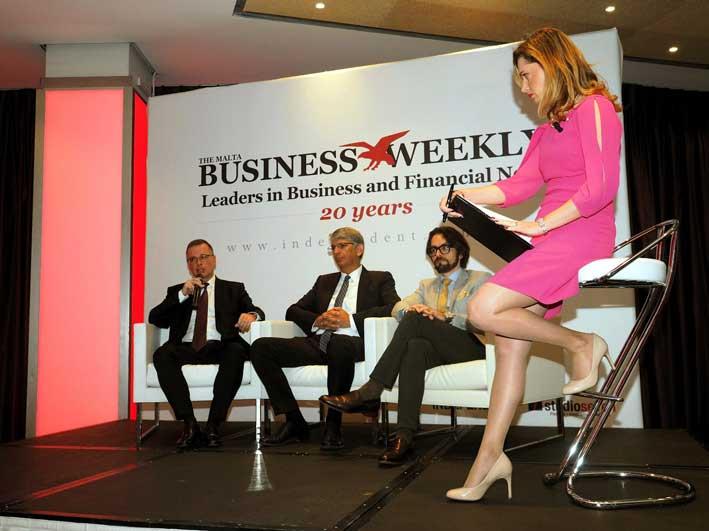
What is a smart contract?
Tendon described how the proposed authority is aimed at creating an environment to nurture innovation, while it must also be mindful of not stepping on the toes of other local regulators.
“We need to make sure we do not over-regulate. Technology arrangements, for instance, is like an abstract concept, but it will cover the internet of things, Artificial Intelligence, and who knows what future technology might come about.”
He said Malta could truly be a leader in the area of legal personality for technology arrangements. Like companies and other entities have legal personality and can be held accountable, there is a big question on the legal personality of several technology arrangements being development with respect to DLT and Blockchain technology.
Tendon commended the Malt Financial Services Authority (MFSA) for two consultation documents released with the aim of defining various concepts such as what is a security, what is a currency and what is a token? He said the provision of a category framework is very useful, unlike the USA which sees everything as a security, hindering innovation for smaller market players.

Panel discussion
A panel discussion took place with Steve Tendon of MBA, Ian Gauci – Partner at GTG Advocates and Max Ganado – Senior Partner at GANADO Advocates. Moderator Rachel Attard, Editor-in-chief of The Malta Independent received many questions from the audience made up of key industry players.
Pertinent issues where discussed from technological, legal and practical aspects
Broadly speaking, Gauci said:
“For us to embrace this technological advancement, we [Malta] need to look holistically, government and industries together. If this thing does not happen in 5-10 years time, it will happen later. It is happening.
“The sooner we embrace it, the sooner we can project Malta as one of the leaders. It is not only Blockchain in that case, it is the whole mentality.”
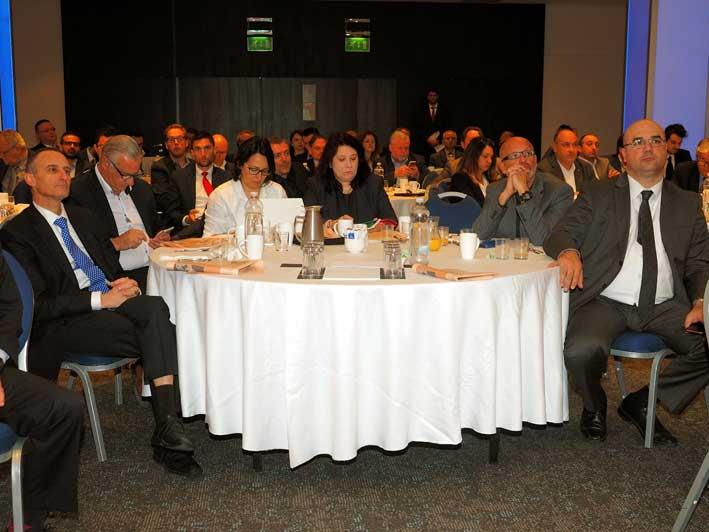
Steve Tendon responded to a question on job creation as a result of Blockchain, where he described the need for ‘legal engineers’, “which is like the baby of an engineer and a lawyer,” adding that such an amalgamation will change the way software engineers write code.
“We need to regulate the behaviour technologies in certain domains.”
Ganado responded to a question about accountability and Blockchain, and how the technology can solve many problems being faced today. He was referring to the use of an e-ID attached to anybody plugged into the Blockchain platform, meaning that a very clear trail, which cannot be manipulated, will create a level of transparency not quite available currently.